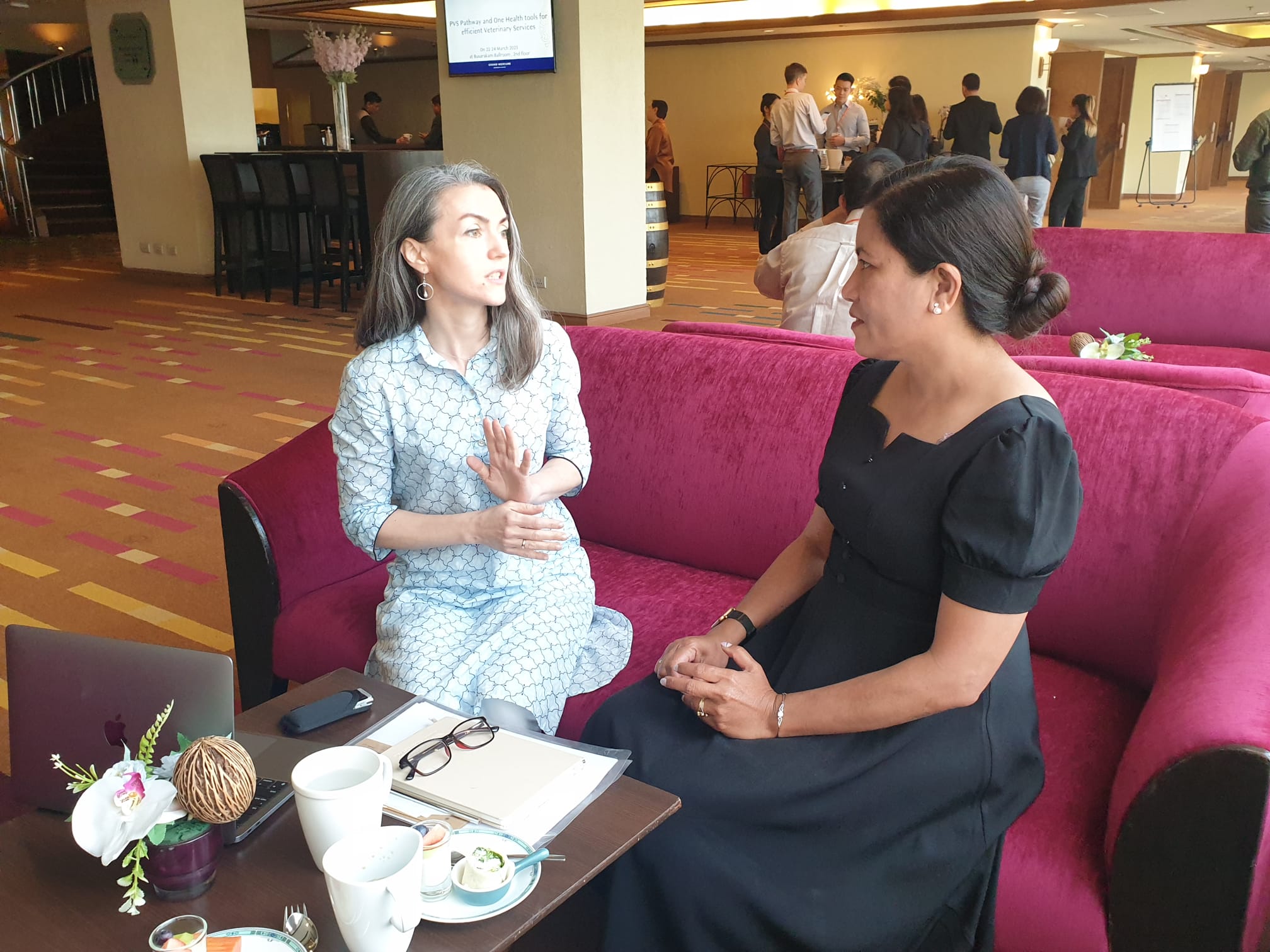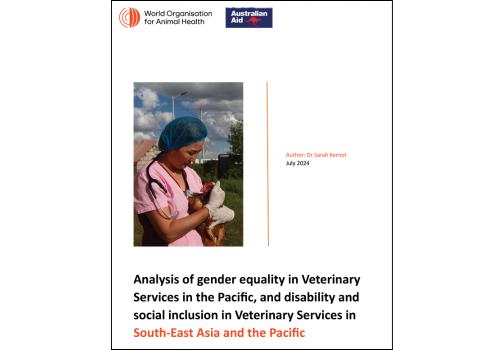
WOAH Newsletter
Number of Women Veterinarians in South-East Asia Continues to Grow
Read more
WOAH is seeking to strengthen its knowledge and capacity on gender equality, disability and social inclusion (GEDSI) and provide relevant information to its Members. Thanks to the support of Australia, this GEDSI analysis commissioned by WOAH in 2024 builds on WOAH’s 2023 Gender Assessment of Veterinary Services in South-East Asia to extend the scope to the Pacific Island Countries and Territories, and to include disability and social inclusion in both regions.
Download the full 2024 studyIn view of these findings, the analysis recommends the following:
WOAH will work with key partners in the region (FAO, FAVA, SEAVSA AAVS, ACDP) to implement the recommendations of the study.



